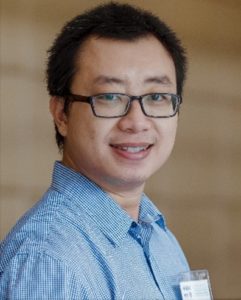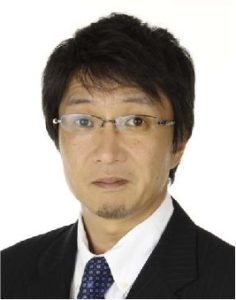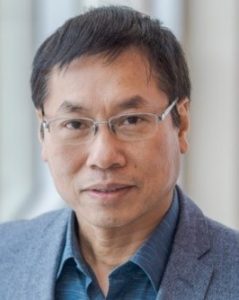Special Session #1: Advanced Control Technologies for Multi-Motor Multi-Source Vehicles
Co-Organizer: Bảo-Huy Nguyễn, Hanoi University of Science and Technology, Vietnam
Co-Organizer: Thanh Vo-Duy, Hanoi University of Science and Technology, Vietnam
Co-Organizer: Binh Minh Nguyen, Toyota Technological Institute, Japan
Co-Organizer: Kan Akatsu, Yokohama National University, Japan
Co-Organizer: Minh C. Ta, University of Sherbrooke, QC, Canada
Call For Papers
The term multi-motor multi-source vehicles (3MSVs) is considered in its broader sense, including all types of on-road and on-air vehicles, which are driven by more than one electric motor and supplied by more than one energy source. The 3MSVs are expected to greatly improve driving safety, traffic and energy efficiency, and to create a new mobility revolution thanks to the construction flexibility.
However, challenges exist due to the complexity of 3MSVs’ mechanical systems, uncertainties of environment and driving situation, and the limits of energy source as well as sensor capability, etc. To address these challenges, advanced control technologies should be developed to optimize control allocation, improve vehicle performance, and minimize energy consumption. Besides, theoretical studies would be provided to properly analyze and design the vehicle systems with less burden. Last but not least, it is essential to develop the modeling and simulation methods to capture the real dynamics of the 3MSVs and the interaction between the motor actuators and energy sources.
This special session, therefore, aims at providing a research forum for those working on vehicular technology and control engineering to exchange their recent findings as well as new ideas, and discuss future topics and potential collaborations on 3MSVs. Both theoretical and application-driven studies are warmly welcome for participation.
Topics of interest include, but are not limited to
- Motor control and motor drives for electric vehicles
- Motor design for electric vehicles
- Energy management of multi-motor vehicles and/or multi-source vehicles
- Motion control of multi-motor vehicles
- Motion control of multi-motor flying vehicles and drones
- Control theories for multi-motor multi-source vehicle systems
- Modeling and simulation of multi-motor multi-source vehicles
- Control and allocation methods for all-wheel-steering vehicles
- Shared control between human, steering motor, and traction motor
- Autonomous control of multi-motor vehicles
- Other related topics in electric vehicle control.
Applications of interest include, but are not limited to
- Design and control of induction motors (IMs), switched reluctance motors (SRMs), and permanent magnet sysnchronous motors (PMSMs)
- Electric vehicle with active steering or all-wheel-steering system
- Electric vehicle driven by in-wheel-motors
- Flying vehicle for human transportation
- Drones for agricultural services
- Flying electric vehicle for human transportation
- Energy management software for battery-capacitor hybrid system
- Energy management software for battery-fuel cell hybrid system
 Bảo-Huy Nguyễn
Bảo-Huy Nguyễn
Bio: Bảo-Huy Nguyễn (Member, IEEE) received the Ph.D. degree in electrical engineering from the Université de Lille, Lille, France, and the Université de Sherbrooke, Sherbrooke, QC, Canada, within a France–Québec Collaboration Program, in 2019.
From 2013 to 2019, he was a Researcher with the Centre for Technology Innovation, Hanoi University of Science and Technology, Hanoi, Vietnam. Since then, he has been with the Control Techniques and Innovation (CTI) Laboratory for Electric Vehicles (EVs), School of Electrical Engineering, Hanoi University of Science and Technology. He was also a Post-Doctoral Fellow with the Université de Sherbrooke from 2019 to 2021. His research interests include control engineering, power electronics, machine drives, and their applications for electric and hybrid vehicles.
Dr. Nguyễn was the Technical Chair of the IEEE Vehicular Technology Society (VTS) Motor Vehicles Challenge 2021.
 Thanh Vo-Duy
Thanh Vo-Duy
Bio: Thanh Vo-Duy (Member, IEEE) received M.S. degree in Automation Engineering and Ph.D. in Control Engineering and Automation from Hanoi University of Science and Technology (HUST), Hanoi, Vietnam in 2007 and 2019, respectively.
From 2005 to 2006, he was a researcher on robotics with Meijo University, Japan. Since 2006, he has been a lecturer with Department of Industrial Automation, School of Electrical Engineering, HUST. He has also worked as a researcher with Control Technique and Innovation (CTI) Laboratory for Electric Vehicles (EVs) since 2009. He was the chair of Conference Office and the coordinator of the IEEE Vehicle Power and Propulsion Conference (VPPC) 2019 in Hanoi, Vietnam. Recently, he is a member of VPP Technical Committee and the Chair of the Challenge Technical Committee of IEEE-VTS Motor Vehicles Challenge 2022. His research interests include embedded systems, control and energy management of electric vehicles, control of power electronics and electric drives, system modeling and simulation.
Dr. Vo-Duy was a recipient of the Best Paper Award of the IEEE VPPC 2018 in Chicago, IL, USA. He also was a recipient of Contribution Recognition in organizing IEEE VPPC 2019 in Hanoi, Vietnam.
 Binh-Minh Nguyen
Binh-Minh Nguyen
Bio: Binh-Minh Nguyen (Member, IEEE) is a researcher at the Department of Advanced Science and Technology, Toyota Technological Institute, Japan. His main research interests include glocal control, robust control, and their applications to electric vehicles, flying vehicles, and power systems. Dr. Nguyen serves as an Associate Editor at IEEE Vehicular Technology Magazine, and an Area Editor at EAI Endorsed Transactions on Industrial Networks and Intelligent Systems. He was a recipient of the Second Prize Paper Award at the IEEE VPPC 2012, and Best Paper Award in Control Theory at the IEEE-ICM 2015.
 Kan Akatsu
Kan Akatsu
Bio: Kan Akatsu (Member, IEEE) received B.S., M.S., and Ph. D degrees in electrical engineering from Yokohama National University, Yokohama, Japan, in 1995, 1997, 2000 respectively.
He joined Nissan Research Center, Yokosuka, Japan, in 2000, he contributed to the design and analysis of the new concept permanent magnet machines. In 2003, he joined the department of Electrical and Electric Engineering at Tokyo University of Agriculture and Technology, Tokyo, Japan, as an assistant professor. From 2005 to 2007, he is a JSPS Postdoctoral Fellowship for Research Abroad, visiting professor in WEMPEC (Wisconsin Electric Machines and Power Electronics Consortium), University of Wisconsin-Madison. From 2009, he is an associate professor in Shibaura Institute of Technology, Tokyo, Japan. From 2015, he is a professor in Shibaura Institute of Technology, Tokyo, Japan. From 2019, he is a professor in Yokohama National University, Yokohama, Japan.
His research interests are motor control, motor design and inverter control.
Dr. Akatsu is a member of the IEEE PELS, IAS, IE and IEE of Japan.
 Minh C. Ta
Minh C. Ta
Bio: Minh C. Ta (Senior Member, IEEE) is an Associate Professor with the Department of Electrical and Computer Engineering, University of Sherbrooke, Sherbrooke, QC, Canada.
His main research interests include motor drives and advanced control techniques and their applications to electric vehicles and energy conversion systems.
Dr. Ta was a Recipient of the 2017 Nagamori Awards. He was the General Chair of the IEEE Vehicle Power and Propulsion Conference (IEEE-VPPC’2019) in Hanoi, Vietnam. Since 2015 he has been a Guest Editor of Special Issues of several journals, including the IEEE Transaction on Vehicular Technology.
Submission Deadline EXTENDED: 30 May 2022
Acceptance notification: 11 July 2022
Final paper submission deadline: 8 August 2022
To submit a paper to this Special Session, please visit: https://vppc2022.trackchair.com/track/2068
